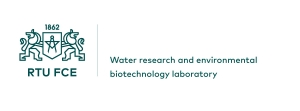A first partners meeting of INTERREG the Baltic Sea region international cooperation programme BEST (Better Efficiency for Industrial Sewage Treatment, #R054) project occurred from 6th to 8th February. The aim of the project is to improve water resources management in order to decrease an effect of wastewaters and hazardous substances leeks on regional watersheds and the Baltic Sea. This way increasing a capacity of a public and private sector for water quality problems solutions.
The meeting was attended by partners from Finland, Germany, Russia, Poland, Ukraine and Latvia. RTU is grateful to organizers, especially Kajsa Rosqvist (the leader of BEST project) for making such an intensive and interesting programme of the meeting. RTU team was presented by Kristīna Tihomirova, Sandis Dejus, Jānis Zviedris, Arta Čakša-Lapsiņa and Tālis Juhna.
The meeting was opened by Esa Nikunen – director general of the Environment Centre of Helsinki City. Mr. Nikunen told about Finland progress towards zero biogen emissions into the Baltic Sea. Every partner had an opportunity to present their planned activities in the BEST project. Sandis Dejus presented aims and plans of RTU Water Research Laboratory, as well as talked about expected contribution from other partners and a resulting project impact. To compare legislation, evaluate the most important contaminating substances and understand which technologies are used in all of the partners’ countries, RTU scientists made a questionnaire. The questionnaire was presented by RTU guest expert Jānis Zviedris. Working in teams, project partners collected opinions on urgent problems, determining a structure for cooperation between municipalities and manufactures in wastewater treatment sector.
On February 7th, a seminar was organized with an aim to clarify what are the possible pitfalls for implementation of new technologies in manufactures and municipalities. Possible solutions and proposals list were also created. Kristīna Tihomirova presented a work done by RTU team.
Project partners also had a great possibility to visit Helsinki city wastewater treatment plant Viikinmaki. The WWTP treats 280’000 m3 a day (maximal load 700’000 m3/day). The WWTP built in 1994, replaced 12 technologically outdated treatment plants from Helsinki suburb. Treated wastewater is released directly into The Baltic Sea. Afterwards the meeting participants visited wastewater treatment plant Riihimaki and Valio dairy factory. The enterprises demonstrated a great cooperation praxis between municipality and production factory.
On February 8th a seminar was organized with an aim to understand which state authorities have the biggest impact on BEST project, results and aim achieving. Tālis Juhna presented a work done by RTU team. The meeting was closed up by steering committee.
The next project partners meeting is planned after 6 months in Polish city of Gdansk. During project implementation period workshops will be organized in every partners’ country with an aim to improve cooperation between factories and municipalities (as well as other governmental institutions).
The news will follow!







